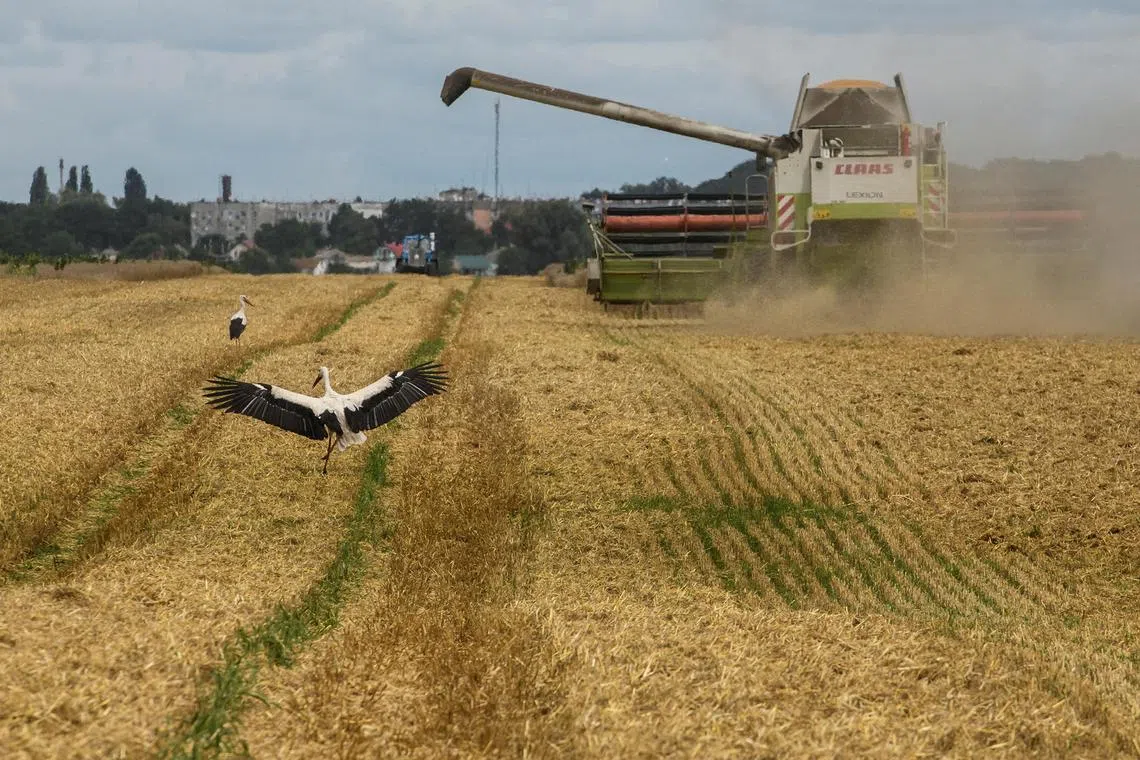Ukraine holding online talks with partners on grain export deal extension, says source
Sign up now: Get ST's newsletters delivered to your inbox

The Black Sea Grain Initiative is due to expire on March 18 unless an extension is agreed.
PHOTO: REUTERS
KYIV – Ukraine has started online talks with partners on extending the Black Sea Grain Initiative aimed at ensuring Kyiv can keep shipping grain to global markets, a senior Ukrainian government source said on Tuesday.
The source said Ukraine has not held discussions with Russia, which blockaded Ukrainian Black Sea ports after its 2022 invasion.
The source added it is Kyiv’s understanding that its partners are talking to Moscow.
“The situation with negotiations is rather complicated. Now a lot depends not on us but on the partners,” said the source, who spoke to Reuters on condition of anonymity.
Ukraine is a major global grain grower and exporter, but its exports have been hit by Russia’s invasion.
The Black Sea Grain Initiative was brokered by the United Nations and Turkey last July extended in November.
It is due to expire on March 18 unless an extension is agreed on.
Mr Yuriy Vaskov, Ukraine’s deputy minister of restoration, told Reuters in February that Kyiv would ask all sides to start talks on extending the deal by at least one year.
Ukraine also wants the city of Mykolaiv’s ports included.
Turkish Foreign Minister Mevlut Cavusoglu said last week that Ankara is working hard to extend the initiative, while Russia has signalled that it is unhappy with aspects of the deal.
Moscow has said it will agree to extend the Black Sea grain deal only if the interests of its own agricultural producers are taken into account.
Russia’s agricultural exports have not been explicitly targeted by Western sanctions.
But Moscow says restrictions on its payments, logistics and insurance industries are a “barrier” to it being able to export its own grains and fertilisers.
Ukraine’s grain exports are down 26.6 per cent at 32.9 million tonnes in the 2022/2023 season as at Monday, hit by a smaller harvest and logistical difficulties caused by Russia’s invasion. REUTERS


